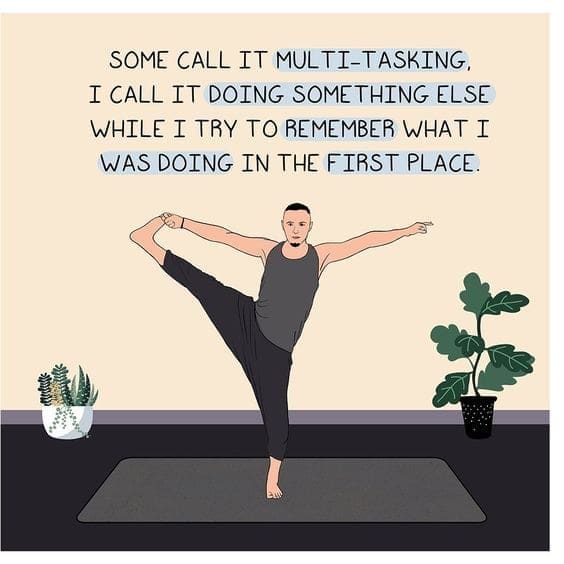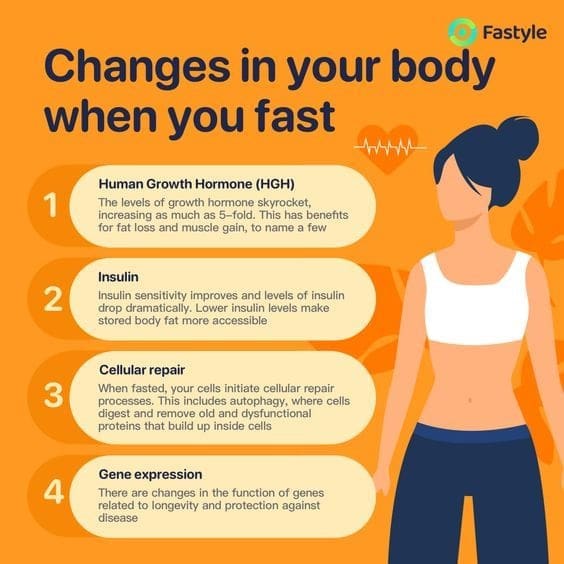The Science of Massage Therapy: Benefits for Mind, Body, and Soul
Are you looking for a natural and holistic way to improve your overall well-being? Look no further than the science behind massage therapy. This ancient practice has been used for centuries to heal the mind, body, and soul. But what exactly is the science behind it? In this article, we will dive deep into the benefits of massage therapy and explore how it can positively impact your physical and mental health. From reducing stress and anxiety to relieving muscle tension and improving circulation, massage therapy offers a wide range of therapeutic benefits. So, whether you’re seeking relaxation, pain relief, or simply a moment of self-care, discover the science behind massage therapy and unlock a world of wellness.
Understanding the Mind-Body Connection
The mind-body connection is a fundamental aspect of massage therapy. It recognizes that the mind and body are intricately linked, and what affects one will inevitably impact the other. Massage therapy works by targeting specific areas of the body to promote relaxation, reduce tension, and release toxins. When these physical changes occur, they also have a profound effect on the mind, resulting in reduced stress, improved mood, and enhanced mental clarity.
Massage therapy stimulates the production of endorphins, which are the body’s natural painkillers and mood enhancers. These feel-good chemicals are released during a massage, creating a sense of euphoria and relaxation. Additionally, massage therapy triggers the release of oxytocin, often referred to as the “love hormone,” which promotes feelings of trust, bonding, and emotional well-being. By addressing both physical and mental aspects, massage therapy provides a holistic approach to healing and wellness.
Massage therapy also promotes better sleep by reducing anxiety and tension in the body. As you receive a massage, your muscles relax, your heart rate slows down, and your breathing becomes deeper and more rhythmic. This state of relaxation prepares your body for rest, leading to a more restful and rejuvenating sleep. Improved sleep has a direct impact on your overall well-being, including increased energy levels, enhanced cognitive function, and a strengthened immune system.
The Physical Benefits of Massage Therapy
Massage therapy offers numerous physical benefits that can improve your overall health and well-being. One of the primary physical benefits of massage therapy is the relief of muscle tension and pain. Whether you’re suffering from chronic pain or experiencing muscle tightness due to stress or physical activity, massage therapy can provide much-needed relief. Through various techniques such as kneading, stretching, and applying pressure, massage therapists can target specific muscle groups, release tension, and restore muscle balance.
Another physical benefit of massage therapy is improved circulation. During a massage, the pressure applied to the body helps to increase blood flow, which in turn delivers oxygen and nutrients to the muscles and organs. This enhanced circulation not only promotes healing but also improves the overall function of the body. It can help reduce swelling, speed up the healing of injuries, and even enhance athletic performance.
Massage therapy also supports a healthy immune system. By stimulating the lymphatic system, massage can help remove toxins and waste products from the body, boosting your immune response. Moreover, massage therapy has been found to reduce inflammation throughout the body, which can have a positive impact on various health conditions, including arthritis, fibromyalgia, and autoimmune disorders.
The Mental and Emotional Benefits of Massage Therapy
In addition to the physical benefits, massage therapy offers a myriad of mental and emotional benefits. One of the most significant benefits is stress reduction. Stress has become a prevalent aspect of modern life, and its negative impact on physical and mental health is well-documented. Massage therapy provides a natural and effective way to combat stress by activating the body’s relaxation response. This response, also known as the parasympathetic nervous system, helps to lower heart rate, blood pressure, and cortisol levels – the hormone associated with stress.
Regular massage therapy has also been shown to alleviate symptoms of anxiety and depression. The soothing touch and focused attention received during a massage can induce a state of deep relaxation, which helps to calm the mind and alleviate anxious thoughts. Massage therapy also promotes the release of serotonin and dopamine, neurotransmitters that are often deficient in individuals with depression. These “feel-good” chemicals can help improve mood and overall emotional well-being.
Furthermore, massage therapy can enhance mental clarity and improve cognitive function. By reducing stress and increasing relaxation, massage therapy allows the mind to rest and recharge. This can lead to improved concentration, better problem-solving skills, and enhanced creativity. Additionally, massage therapy has been shown to improve sleep quality, which is essential for maintaining optimal mental health.
The Spiritual Benefits of Massage Therapy
Massage therapy is not only beneficial for the mind and body but also for the soul. It provides a sacred space for self-reflection, introspection, and inner healing. The nurturing touch of a massage therapist can create a sense of connection and trust, allowing you to let go of emotional burdens and release negative energy. Massage therapy can also facilitate the release of stored emotions, providing a cathartic experience that promotes emotional balance and spiritual growth.
Moreover, massage therapy encourages mindfulness and presence in the moment. As you receive a massage, you are encouraged to focus on your breath, body sensations, and the present experience. This mindfulness practice can help quiet the mind, cultivate inner peace, and deepen your connection to yourself and the world around you. Massage therapy can serve as a form of meditation, allowing you to enter a state of deep relaxation and heightened awareness.
The Science Behind Massage Therapy – How It Affects the Body
The science behind massage therapy lies in its ability to influence the body on a physiological level. When you receive a massage, various biological responses occur, leading to the numerous benefits mentioned earlier. One of the key physiological responses is the activation of the relaxation response, also known as the parasympathetic nervous system. This response counteracts the effects of the stress response, which is commonly activated during times of anxiety or physical exertion.
During a massage, the pressure applied to the body stimulates the release of endorphins, serotonin, and dopamine – neurotransmitters that promote feelings of relaxation, happiness, and overall well-being. These chemicals not only help to reduce pain and improve mood but also have a positive impact on the immune system, cardiovascular health, and the body’s overall ability to heal.
Massage therapy also affects the body at a muscular level. The techniques used during a massage, such as kneading, stretching, and applying pressure, help to release muscle tension, increase range of motion, and improve muscle function. Additionally, massage therapy can break up adhesions and scar tissue, promoting better circulation and nutrient delivery to the muscles. This can lead to a faster recovery from injuries and enhanced athletic performance.
Different Types of Massage Therapy and Their Specific Benefits
There are various types of massage therapy, each with its own specific benefits and techniques. Here are some of the most common types of massage therapy:
1. Swedish Massage: This is the most well-known type of massage and involves long, flowing strokes, kneading, and circular movements. It is ideal for relaxation, stress reduction, and improving circulation.
2. Deep Tissue Massage: This technique focuses on the deeper layers of muscle and connective tissue. It is beneficial for releasing chronic muscle tension, reducing pain, and improving mobility.
3. Sports Massage: Designed for athletes and active individuals, sports massage focuses on preventing and treating sports-related injuries. It helps to improve flexibility, reduce muscle soreness, and enhance athletic performance.
4. Shiatsu Massage: Originating from Japan, shiatsu massage involves applying pressure to specific points on the body to promote energy flow and balance. It is beneficial for relieving tension, reducing stress, and improving overall well-being.
5. Thai Massage: This type of massage combines stretching, acupressure, and compression techniques to improve flexibility, relieve muscle tension, and promote relaxation.
6. Aromatherapy Massage: Aromatherapy massage involves the use of essential oils to enhance the therapeutic benefits of the massage. Different oils have different properties, such as calming, uplifting, or energizing.
Each type of massage therapy offers unique benefits, and it’s essential to choose the one that aligns with your specific needs and preferences. Consulting with a qualified massage therapist can help you determine the best approach for your individual circumstances.

How to Find a Qualified Massage Therapist
Finding a qualified massage therapist is crucial to ensure a safe and effective massage experience. Here are some tips to help you find the right therapist:
1. Check Credentials: Look for massage therapists who are licensed and certified. This ensures that they have received the necessary training and adhere to professional standards.
2. Ask for Recommendations: Seek recommendations from friends, family, or healthcare professionals who have had positive experiences with massage therapists.
3. Read Reviews: Look for online reviews and testimonials from previous clients to get an idea of the therapist’s expertise and professionalism.
4. Interview Potential Therapists: Schedule a consultation or phone call with potential therapists to ask about their qualifications, experience, and approach to massage therapy.
5. Trust Your Instincts: Ultimately, trust your instincts when choosing a massage therapist. It’s important to feel comfortable, safe, and respected during your sessions.
Remember that finding the right massage therapist may require some trial and error. Don’t be afraid to try different therapists until you find the one who meets your needs and makes you feel comfortable.
Incorporating Massage Therapy into Your Self-Care Routine
Massage therapy can be a valuable addition to your self-care routine, providing physical, mental, and emotional benefits. Here are some tips on how to incorporate massage therapy into your routine:
1. Schedule Regular Sessions: Make massage therapy a regular part of your wellness routine. Depending on your needs and preferences, you can schedule sessions weekly, bi-weekly, or monthly.
2. Prioritize Self-Care: Treat massage therapy as an act of self-care and make it a priority in your schedule. Block off dedicated time for your sessions, and don’t let other commitments take precedence.
3. Communicate with Your Therapist: Before each session, communicate your specific needs, concerns, and goals to your therapist. This will ensure that they tailor the massage to your individual needs.
4. Practice Mindfulness: During your massage sessions, practice mindfulness by focusing on your breath, body sensations, and the present moment. This will enhance the relaxation and therapeutic benefits of the massage.
5. Extend the Benefits: Take the benefits of massage therapy beyond the session by incorporating self-massage techniques, stretching, and relaxation exercises into your daily routine.
6. Listen to Your Body: Pay attention to how your body feels before, during, and after each massage session. This will help you better understand your needs and adjust your self-care routine accordingly.
By incorporating massage therapy into your self-care routine, you can experience the transformative power of touch and unlock a world of holistic wellness.
Conclusion – The Holistic Benefits of Massage Therapy
Massage therapy is far more than just a luxurious treat; it is a science-backed practice that offers a wide range of benefits for the mind, body, and soul. By understanding the science behind massage therapy and its positive impact on physical and mental health, you can make an informed decision to prioritize your well-being.
From reducing stress and anxiety to relieving muscle tension and improving circulation, massage therapy provides a holistic approach to healing and wellness. By addressing the mind-body connection, massage therapy promotes relaxation, enhances mental clarity, and cultivates emotional well-being. It also provides a sacred space for self-reflection, introspection, and spiritual growth.
Whether you’re seeking relaxation, pain relief, or simply a moment of self-care, massage therapy can be a powerful tool on your wellness journey. By finding a qualified massage therapist, incorporating regular sessions into your self-care routine, and practicing mindfulness, you can experience the transformative benefits of touch and unlock a world of holistic wellness.
So, what are you waiting for? Discover the science behind massage therapy and embark on a journey of self-care, healing, and well-being. Your mind, body, and soul deserve it.
Remember, incorporating massage therapy into your self-care routine can have a profound impact on your overall well-being. So go ahead, prioritize your wellness and unlock the transformative power of touch.
Disclaimer
The content is purely informative and educational in nature and should not be construed as medical advice. Please use the content only in consultation with an appropriate certified medical or healthcare professional

The Healing Power of Massage Therapy: Enhancing Relaxation and Well-being
Unveiling the Benefits of Massage Therapy for Your Body and Mind Introduction: Massage therapy is a widely embraced holistic practice that offers numerous benefits for relaxation and overall well-being. Through the skilled manipulation of soft tissues, massage therapists help alleviate tension, reduce stress, and promote physical and mental relaxation. In this article, we will delve into the benefits of massage therapy and explore how this ancient practice can enhance your overall well-being. Stress Relief: Unwinding the Mind and Body One of the primary benefits of massage therapy is its ability to reduce stress levels. The soothing touch of a skilled therapist helps relax the body and mind, releasing tension and promoting a deep sense of calm. As stress melts away, massage therapy can improve your mood, increase energy levels, and enhance overall well-being. Muscle Relaxation: Easing Tension and Enhancing Flexibility Massage therapy specifically targets muscle tension, helping to release tightness and knots that can accumulate due to stress, poor posture, or physical exertion. Through various techniques, such as Swedish massage or deep tissue massage, therapists apply pressure and utilize kneading motions to promote muscle relaxation. This can alleviate muscle soreness, improve flexibility, and enhance circulation, allowing for a greater sense of ease and freedom in movement. Pain Management: A Complementary Approach to Relief For those dealing with chronic pain, massage therapy can be an effective complementary approach to pain management. By reducing muscle tension and promoting relaxation, massage therapy can alleviate discomfort associated with conditions such as back pain, neck pain, headaches, and fibromyalgia. Furthermore, massage stimulates the release of endorphins, natural pain-relieving hormones in the body, offering a welcomed reprieve from persistent pain. Improved Sleep Quality: Drifting into Serenity Regular massage sessions can contribute to better sleep quality. The deeply relaxing nature of massage helps to calm the body and mind, creating an environment conducive to restful sleep. This can be particularly beneficial for individuals who struggle with insomnia or have difficulty achieving a state of deep relaxation necessary for rejuvenating sleep. Enhanced Mood and Mental Well-being: Nurturing Inner Harmony Massage therapy has a profound impact on mental health and well-being. By promoting relaxation and releasing endorphins, massage therapy can reduce symptoms of anxiety and depression, offering a respite from the challenges of daily life. The nurturing touch and peaceful ambiance of a massage session can create a sense of comfort and connection, contributing to an overall uplifted mood and improved mental well-being. Boosted Immune System: Fortifying Your Body’s Defense Massage therapy has been found to have immune-boosting effects. By reducing stress and promoting relaxation, it can enhance immune function and improve the body’s ability to fight off illnesses and infections. A strengthened immune system not only helps protect against common ailments but also supports overall health and vitality. Increased Body Awareness: Tuning In to Your Physical Self Massage therapy promotes body awareness by encouraging individuals to tune into their physical sensations and become more mindful of their bodies. This heightened awareness can help identify areas of tension or discomfort, allowing for proactive self-care and a better understanding of one’s body’s needs. By listening to the body’s signals, individuals can take steps to address imbalances and maintain optimal health. Lowered Blood Pressure: Relaxing the Body, Calming the Heart Regular massage sessions have been associated with reduced blood pressure levels. By inducing relaxation and reducing stress Lowered Blood Pressure: Relaxing the Body, Calming the Heart Regular massage sessions have been associated with reduced blood pressure levels. By inducing relaxation and reducing stress, massage therapy can contribute to a healthier cardiovascular system and help manage hypertension. The soothing touch and tranquil environment of a massage session create an ideal setting for the body to release tension and achieve a state of calm, resulting in lowered blood pressure and improved overall cardiovascular health. Improved Posture and Flexibility: Unleashing Your Body’s Potential Massage therapy can have a positive impact on posture and flexibility. By releasing tension in muscles that contribute to poor alignment, massage therapy helps improve posture and alleviate muscular imbalances. Additionally, it enhances flexibility by loosening tight muscles and improving joint mobility, allowing for a wider range of motion and better physical performance. With improved posture and flexibility, you can move more freely and comfortably throughout your daily activities. Overall Relaxation and Well-being: Embracing a Renewed Sense of Vitality Above all, massage therapy provides an unparalleled sense of relaxation and well-being. The combination of physical touch, a soothing environment, and the skilled techniques of a massage therapist creates an experience that promotes deep relaxation, rejuvenation, and a renewed sense of vitality. Whether you seek massage therapy for stress relief, pain management, or simply to indulge in a moment of self-care, the holistic benefits extend far beyond the massage table, permeating every aspect of your life. Conclusion: Massage therapy offers a wide range of benefits for relaxation and overall well-being. From stress relief and muscle relaxation to pain management and improved sleep quality, massage therapy has the power to enhance both the body and mind. By incorporating regular massage sessions into your wellness routine, you can experience the profound effects of this ancient healing practice and enjoy a more relaxed, balanced, and vibrant life.







